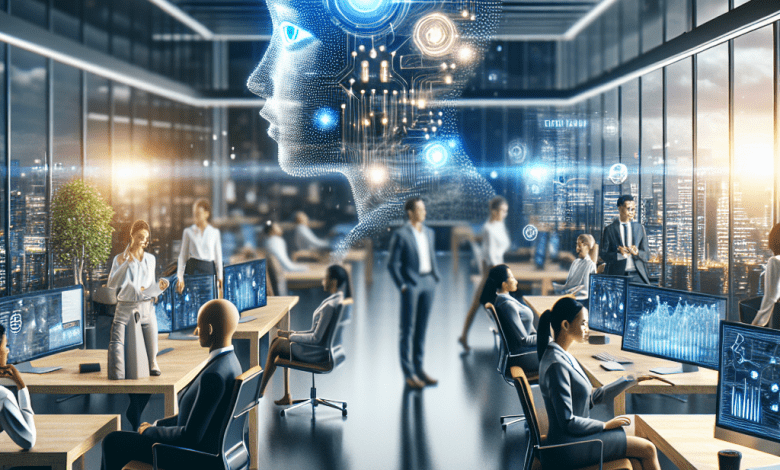AI Redefining the Future of Work

Workforce Shake-Ups: How AI Is Changing the Future of Work
Let’s talk about AI. It’s exciting, isn’t it? But, let’s be real—it’s also a little nerve-wracking. The big question is: what does AI mean for our jobs? Let’s explore how it’s reshaping the workforce, why adaptability matters more than ever, and how it might either close or widen economic gaps. Ready? Let’s dive in.
1. The Good and the Bad: AI’s Dual Impact on Jobs
AI isn’t just tech jargon anymore—it’s real, and it’s changing everything. Think about those boring, repetitive tasks that suck up your time. AI is handling those now. The result? New career paths in fields like AI ethics, data science, and cybersecurity. But there’s a flip side too.
- What’s ahead? By 2025, industries like logistics, finance, and healthcare will see a surge in automation. Expect new roles like “AI trainers” to emerge. These people will fine-tune smart systems to make them even better.
- The downside? Sectors like retail and transportation might see job losses. But don’t panic—governments are stepping in with retraining programs to help affected workers shift to new careers.
- Education’s response: Universities and online platforms are already creating micro-credential programs. Think of them as quick, targeted courses to prepare for the future.
2. Why Being Adaptable is Your New Superpower
AI is evolving fast. If you can adapt and keep learning, you’ll thrive. Simple as that.
- What companies want: By 2025, employers will look for people who can juggle multiple roles and skills. Being flexible is no longer optional—it’s a must.
- Human + AI teamwork: The future is about working with AI, not against it. Tools that let you co-write, co-design, and co-create will be game-changers. Master these, and you’ll stay ahead.
- Upskilling programs: Companies are already rolling out AI boot camps for employees. It’s a smart move—better skills mean better outcomes for everyone.
3. AI and Economic Gaps: Bridging or Widening?
AI could either level the playing field or make it even more uneven. It’s all about how we use it.
- Big tech to the rescue: By 2025, expect more AI tools designed for small businesses. This could lower the barriers to global competition and fuel innovation.
- Closing the digital divide: Governments are starting to push for affordable AI-powered infrastructure in underserved regions. It’s about time everyone got a fair shot.
- The risk: Wealthier nations may still reap the biggest rewards from AI advancements. International partnerships will be key to balancing the scales.
Stay Ready
The bottom line? The future of work is already here. It’s full of opportunities—but also challenges. Keep learning, stay flexible, and be prepared to evolve. The good news? You’re not alone on this journey.
Stay Ahead in AI
Get the latest AI news, insights, and trends delivered to your inbox every week.





One Comment